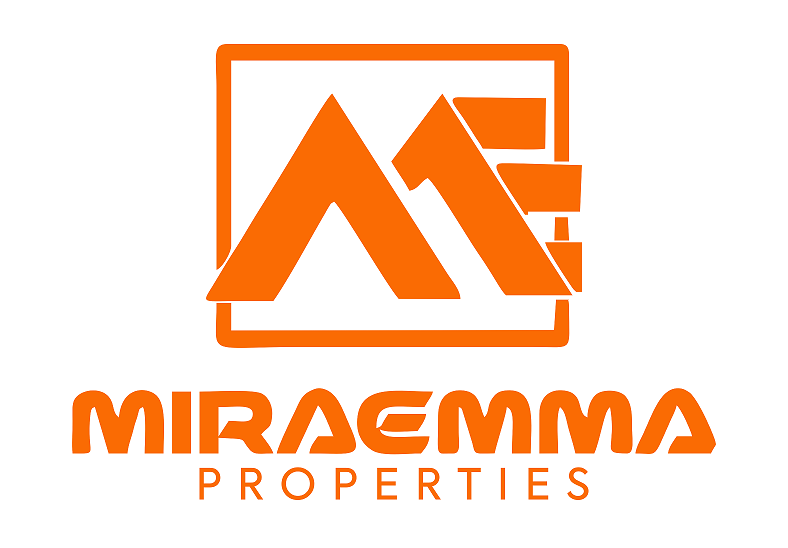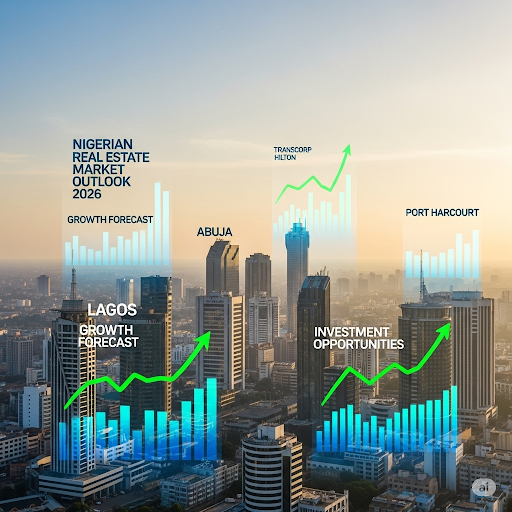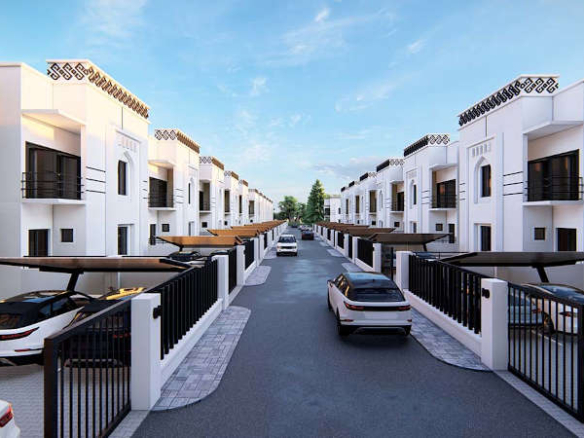As 2025 draws to a close, savvy investors are already looking ahead, asking the critical question: What will shape the Nigerian real estate market in 2026? After a year of dynamic economic shifts and policy adjustments, the stage is set for a year of significant opportunities—for those who know where to look.
This outlook from MiraEmma Properties provides a professional analysis of the key trends, challenges, and investment hotspots we anticipate for the year ahead. Our goal is to equip you with the strategic insight needed to make confident and profitable decisions.
Disclaimer: This analysis is based on current data, market sentiment, and planned infrastructure projects as of Q3 2025. Market conditions are dynamic and subject to change.
The Big Picture: Economic Factors Driving the Market
The real estate sector does not exist in a vacuum. In 2026, its performance will be closely tied to several macroeconomic factors:
-
Government Policy: Continued focus on infrastructure projects under the Federal Government’s agenda is expected to continue opening up new areas for development, particularly along key road and rail corridors.
-
Inflation & Monetary Policy: While inflation remains a concern, any potential stabilization or easing of interest rates by the CBN could boost mortgage accessibility and spur growth in the mid-range housing market.
-
Diaspora Remittances: The influx of foreign exchange from Nigerians abroad will remain a powerful engine for the real estate market, especially in the upper-middle and luxury segments. This capital provides crucial liquidity and fuels demand for high-quality properties.
Key Market Trends to Watch in 2026
Beyond the economy, specific trends within the sector itself will define the landscape for investors.
1. The “Flight to Quality” Continues. In times of uncertainty, both residential and commercial clients are prioritizing quality. In 2026, expect continued high demand for properties within well-managed estates that offer superior infrastructure, security, and amenities like 24/7 power and recreational facilities. Standalone properties will need to compete on price, while estate properties will command a premium.
2. Sustainability Becomes a Selling Point The demand for sustainable and eco-friendly homes is no longer a niche trend. Developers are increasingly incorporating features like solar power solutions, better water management, and green spaces into their projects. In 2026, properties with these features will be more attractive to both buyers and renters, potentially fetching higher valuations.
3. The Unstoppable Growth of Satellite Towns As the urban centers of Lagos and Abuja become more congested and expensive, the real growth story is happening on their peripheries. The trend of land banking and large-scale development in satellite towns (like Epe in Lagos, or areas beyond Life Camp in Abuja) will accelerate. These locations offer lower entry points for investors and significant long-term appreciation potential.
Investment Hotspots: A City-by-City Outlook for 2026
-
Lagos: The commercial nerve center will continue to be driven by major infrastructure. The impending completion of projects like the 4th Mainland Bridge will unlock unprecedented value in areas along the Ikorodu-Epe axis. The Lekki-Epe corridor will remain a prime focus for residential, commercial, and industrial real estate due to the influence of the Lekki Free Trade Zone and the Dangote Refinery.
-
Abuja: As the seat of government, Abuja offers stability and consistent rental demand. In 2026, we expect continued expansion in well-planned districts like Guzape and Wuye. There will also be a strong market for mid-range housing catering to the vast civil servant population, presenting opportunities for Build-to-Rent investors.
-
Port Harcourt: The city’s market is intrinsically linked to the oil and gas sector. With stable energy prices, we anticipate a steady recovery and increased demand for secure, high-quality residential estates. The industrial property sector also shows promise, driven by logistics and manufacturing support for the energy industry.
Your Strategic Approach for 2026
The Nigerian real estate market in 2026 will reward the informed and strategic investor. The key to success will be identifying quality, understanding the impact of infrastructure, and looking towards the clear trend of peripheral growth.
Navigating these dynamics requires more than just a real estate agent; it requires an expert advisor. At MiraEmma Properties, we provide the in-depth analysis and due diligence you need to position your capital wisely for the opportunities of tomorrow.
Ready to build your 2026 investment strategy? Partner with a team that looks ahead.





Join The Discussion